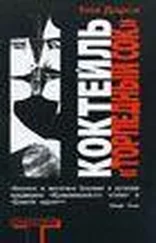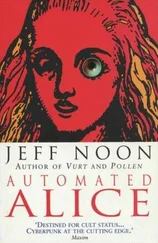Jeff Noon - Pixel Juice
Здесь есть возможность читать онлайн «Jeff Noon - Pixel Juice» весь текст электронной книги совершенно бесплатно (целиком полную версию без сокращений). В некоторых случаях можно слушать аудио, скачать через торрент в формате fb2 и присутствует краткое содержание. Год выпуска: 2000, ISBN: 2000, Издательство: Black Swan, Жанр: Киберпанк, Современная проза, на английском языке. Описание произведения, (предисловие) а так же отзывы посетителей доступны на портале библиотеки ЛибКат.
- Название:Pixel Juice
- Автор:
- Издательство:Black Swan
- Жанр:
- Год:2000
- ISBN:0-552-99937-7 / 978-0-552-99937-3
- Рейтинг книги:3 / 5. Голосов: 1
-
Избранное:Добавить в избранное
- Отзывы:
-
Ваша оценка:
- 60
- 1
- 2
- 3
- 4
- 5
Pixel Juice: краткое содержание, описание и аннотация
Предлагаем к чтению аннотацию, описание, краткое содержание или предисловие (зависит от того, что написал сам автор книги «Pixel Juice»). Если вы не нашли необходимую информацию о книге — напишите в комментариях, мы постараемся отыскать её.
Pixel Juice — читать онлайн бесплатно полную книгу (весь текст) целиком
Ниже представлен текст книги, разбитый по страницам. Система сохранения места последней прочитанной страницы, позволяет с удобством читать онлайн бесплатно книгу «Pixel Juice», без необходимости каждый раз заново искать на чём Вы остановились. Поставьте закладку, и сможете в любой момент перейти на страницу, на которой закончили чтение.
Интервал:
Закладка:
Of the three extant manuscripts attributed to Brother Olmstaff's hand, the first two may be dismissed in passing, being only a fair copy of Plato's Republic, and a rather beautiful illumination of Egberg's On the Chronologic of Certain Insectes. That Plato's philosophies evidently concerned the monk less than the life cycle of the horsefly, has been of interest to some observers.
It was only with the uncovering of the third manuscript in 1959 that the world paid any real attention to the obscure 'tongueless monk of Barnstrop'. How this Latin text found its way from a tiny Lancastrian village to the abandoned library of a household in Dusseldorf has yet to be fully mapped. It was found there by the antiquarian Sir John Bosley, who published his English translation in 1962, the year of his death. This coincidence, of translation and death, has not been overlooked.
Bosley called his translation The Cabinet of Night Unlocked, a rather poetical rendering of Olmstaff's original Latin. Despite this, his work, being of an overly academic nature, attracted interest only from his fellow scholars. The public imagination was stirred only when Lechner later brought the manuscript to their attention.
For all our academic distaste at Professor's Lechner's shallow popularization, and our suspicion of his decadent lifestyle (a known drug-user, associate of Timothy Leary, and a champion of the Acid Tests) we have to admit that but for his death, the Olmstaff Method (as it became known) would still linger in obscurity.
Many have claimed to have seen the public appearance Lechner made in 1974, at which he performed the Olmstaff ritual; only a few can have actually been there. None of them would be unchanged by what they saw.
To say it was my fortune to have been in that audience is to stretch the meaning of the word too far. I was on a short university tour of America at the time, promoting my second book, Morality and Death in the Age of Mass Destruction, and found myself sharing a platform with the charismatic professor. I had no knowledge of his work, but we quickly found ourselves on the same side against the rest of the panel. Our shared position was to make suicide a legitimate undertaking, given the discovery and proliferation of the nuclear bomb. One of our opponents was a bishop of the Roman Catholic faith, so you may picture the ferocity of the arguments. This bishop (I shall refrain from mentioning his name) had read Lechner's Sacred Wound, and was making a mockery of the book's heretical claims. That Lechner was calling the book a religious text 'produced by a brother of your very church!' and a work of God's bounteous goodwill, obviously hit a bare nerve, because the bishop (no doubt to his eternal shame) called for him to offer proof of 'the Devil's sacrament!'
Lechner paused for a moment then, as though drawing strength. He told the bishop that the ritual took approximately fifteen minutes to perform, and that he had no intention of boring the audience for that length of time. The bishop insisted, however, and took a straw poll of the audience. It was a close count, and it may well be that my own raised hand tipped the balance. Who can tell?
'Very well, then,' Lechner said, quite calmly.
He closed his eyes and began to mumble some Latin phrases to himself. I was seated two places along from him, and could only catch a word here and there, and my Latin was nothing like it is now. Every so often he would raise his arms to make some complicated patterns in the air. At one point, perhaps after five minutes, he touched his left hand to his heart. A little later he stamped his right foot. During these movements he was continuously whispering the Latin text. The audience had laughed to begin with, but quickly became bored. Only the bishop could be heard making a spluttering sound.
I had glanced at my pocket watch as Lechner began the ritual, and after thirteen minutes passed, I was becoming quite tense. Even the bishop lapsed into silence as the final minute ticked away. Somebody in the audience dropped a notebook, and the sound of it echoed around the hall, causing me to jump in my seat. But fifteen minutes came and went, and Lechner was still intoning to himself, and so I started to breathe again, and even to smile a little, especially when Lechner opened his eyes finally and smiled right back at me.
The bishop guffawed a final time, and made some derogatory remark.
Lechner closed his eyes, let his head fall gently to one shoulder and then down to his chest. He appeared quite relaxed, and the audience was talking loudly amongst themselves. Some of the rowdier students were even booing, and demanding their money back.
The bishop had risen from his seat, and was now slapping Lechner on the back, calling him a liar and even a false prophet. The professor leaned forward under the force of the slap, until his head was resting on the podium. A glass of water, touched by his forehead, tumbled to the floor, where it smashed.
A silence, deeper than before, once again fell over the auditorium.
Somebody laughed, but then stopped, as the bishop pulled Lechner's head away from the desk. His eyes were closed, his lips still fixed in that beatific smile. Of course, like the bishop, I suspected an aimless joke was being pulled, or that a drug-induced torpor had been achieved. I went over to admonish Lechner for bringing our argument into disrepute, but no words from me would rouse him. I started to shake him vigorously, all to no avail.
I demanded an ambulance be called immediately, which announcement caused a small commotion in the audience. A few students were making their way to the platform, some more were hurrying out; the vast majority of them were fixed to their seats, as though in reflection of Lechner's fate.
By this time the bishop had moved away slightly, and was crossing himself, as though fearful of the consequences.
Perhaps he was already thinking of his own guilt.
The media were slow to pick up on the story, which hiatus allowed me to find a copy of Lechner's book, The Sacred Wound, in an alternative bookshop on Haight-Ashbury. I was still badly shaken by the professor's strange death, especially when, three days later, the story finally made the local press. I spent a few tense minutes in Customs coming home; it felt as though I was smuggling the work into Britain.
The book had never been published in this country, and never would be. Of course, an enterprising party quickly produced a pirate edition, which was said to fetch a handsome price on the black market. Mine was one of the few legitimate editions.
I was determined to keep an open mind about its contents, but for some reason I hid the thin volume within my prized first edition of Vesalius' De Humanis Corporis Fabrica. There it rested for another two weeks, unread, as the strange story of the American professor who had 'killed himself with words' briefly made headline news. The few details released told only of a doctor's puzzlement at the exact cause of Lechner's death.
Only when the story had faded, did I dare peruse The Sacred Wound for myself.
It was a short book of ninety-nine pages, barely more than a self-produced pamphlet. It was arranged in four sections, the longest being Lechner's introduction. This introduction consisted of the already mentioned biography of Brother Olmstaff, a brief history of the Method, a pseudo-scientific explanation of the Method's effectiveness followed by a plea for its acceptance, and finally a set of guidelines for the correct performance of the ritual.
Lechner had traced the Method back to certain obscure, forbidden texts said to have been lost in the fire that destroyed the Library at Alexandria. He has no explanation as to how Olmstaff came upon these original manuscripts.
Читать дальшеИнтервал:
Закладка:
Похожие книги на «Pixel Juice»
Представляем Вашему вниманию похожие книги на «Pixel Juice» списком для выбора. Мы отобрали схожую по названию и смыслу литературу в надежде предоставить читателям больше вариантов отыскать новые, интересные, ещё непрочитанные произведения.
Обсуждение, отзывы о книге «Pixel Juice» и просто собственные мнения читателей. Оставьте ваши комментарии, напишите, что Вы думаете о произведении, его смысле или главных героях. Укажите что конкретно понравилось, а что нет, и почему Вы так считаете.











